Energy price cap: Millions of households face higher gas and electricity bills
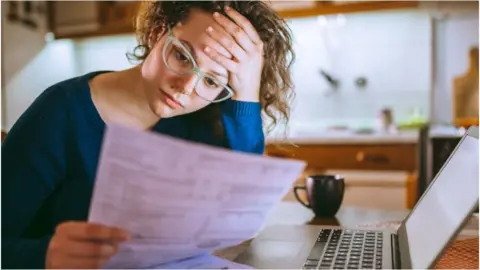 Getty Images
Getty ImagesA squeeze on household finances will become more acute as a new, higher energy price cap takes effect.
Those on standard tariffs, with typical household levels of energy use, will see bills go up by £139 to £1,277 a year, but the more energy a household uses, the higher their bill will be.
Prepayment meter customers with average energy use will see a £153 increase.
The cap has come under the spotlight owing to the crisis among suppliers, which has seen nine firms fold.
The cap limits how much providers can raise prices. Even so, the current increase is the biggest jump, to the highest amount, seen since the backstop was introduced in January 2019.
It represents a 12% rise in energy prices at a time of the year when, charities point out, people are about to use more heating and lighting during colder, darker days. It also coincides with other price rises hitting family budgets and the withdrawal of Covid support schemes, although the government has promised to continue financial help for the poorest households.
About 15 million households in England, Wales and Scotland are affected by the changes.
The cap does not apply in Northern Ireland where prices are overseen by a regulator.
How the cap works
The regulator Ofgem sets a price cap for domestic energy twice a year. The latest level kicked in on 1 October.
It is a cap on the price of energy and charges that suppliers can levy. A household's total bill is still determined by how much gas and electricity is used.
The latest change means:
- Those on standard tariffs, with typical household levels of energy use, will see an increase of £139 - from £1,138 to £1,277 a year - to their bill
- People with prepayment meters, with average energy use, will see an annual increase of £153 - from £1,156 to £1,309
- Households with larger than average energy use will have a higher annual bill
Households on fixed tariffs will be unaffected, but those coming to the end of a contract are automatically moved to a default tariff set at the new level. In the past customers have been able to shop around for cheaper deals, but currently, they won't find anything cheaper, due to the high price of gas.
Adam Scorer, from fuel poverty charity National Energy Action, said: "The massive devastating increases in energy prices will drive over 500,000 more households into fuel poverty, leaving them unable to heat or power their homes."

'Where's the extra money coming from?'
Debbie Wright is about to move into her first flat, but said rising energy bills, as well as lower benefits payments, were detracting from the excitement of her potential independence.
"It's scary - you can't afford to live day by day," she said.
"Where is the extra money coming from?"
She was taking part in a life skills class run by charity Christians Against Poverty. All of those in the class used prepayment meters and were in receipt of food parcels.
"We are seeing all sorts of people in debt," said life skills manager Shirley Bowen.
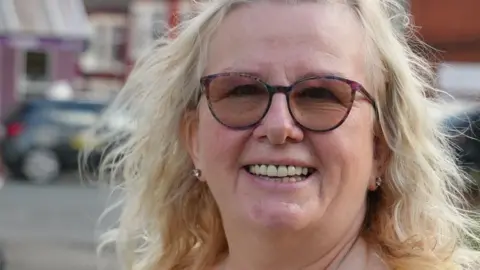
"There have always been people that struggle to manage their finances and I don't think that will ever change. As soon as there is any expense that they don't expect, it knocks them off and they have to cry out for help.
"It is just going to spiral. It is obvious that there will be people who do not put the heating on this winter. Whether or not they will be able to cook for their kids, it will just be sandwiches and cereal, we will have to just wait and see."

How to save money
Usually, the introduction of more expensive energy bills is accompanied with advice to consumers on standard tariffs to switch to a cheaper deal.
The current crisis in the sector means that, this time, there is no availability of better offers. A tariff set at the price cap limit is the most competitive available.
Instead, residents are being encouraged to save money by looking at the energy efficiency of their homes. The Energy Saving Trust said that the price rise could be more than outstripped by changes to our homes and habits.
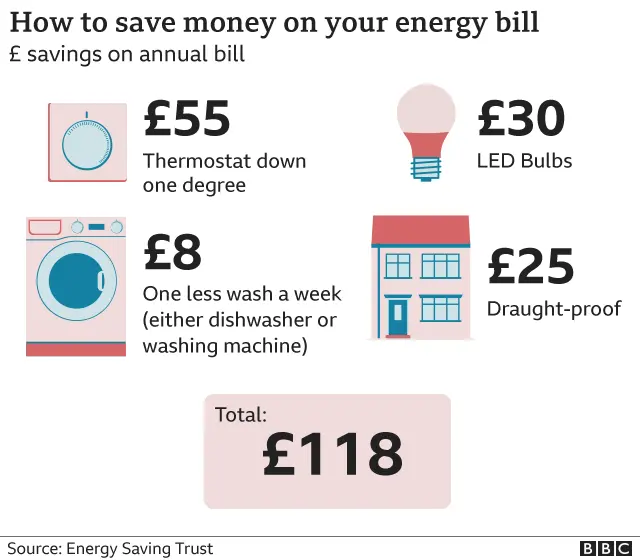
Mr Scorer, from National Energy Action, said: "We can't lose sight of the long-term solution to reduce the energy waste in our homes. We have some of the least efficient housing in Europe.
"This has left the UK more exposed to the current soaring gas price than many other countries and we are wasting billions of pounds each year as heat escapes through leaky roofs, floors and ceilings."
Price cap is tough for suppliers
The new cap was decided in August and is designed to reflect the unavoidable costs faced by energy suppliers.
This came slightly ahead of a massive jump in wholesale gas prices which has led to the collapse of nine suppliers in recent weeks. They have been unable to keep to the price promises they made to their customers, and were uninsured against the increasing costs.
Avro Energy, for example, confirmed on Friday that it had fallen into administration. Its customers will be transferred to Octopus Energy, while its 103 staff will be kept on for at least the short-term to help with the change.
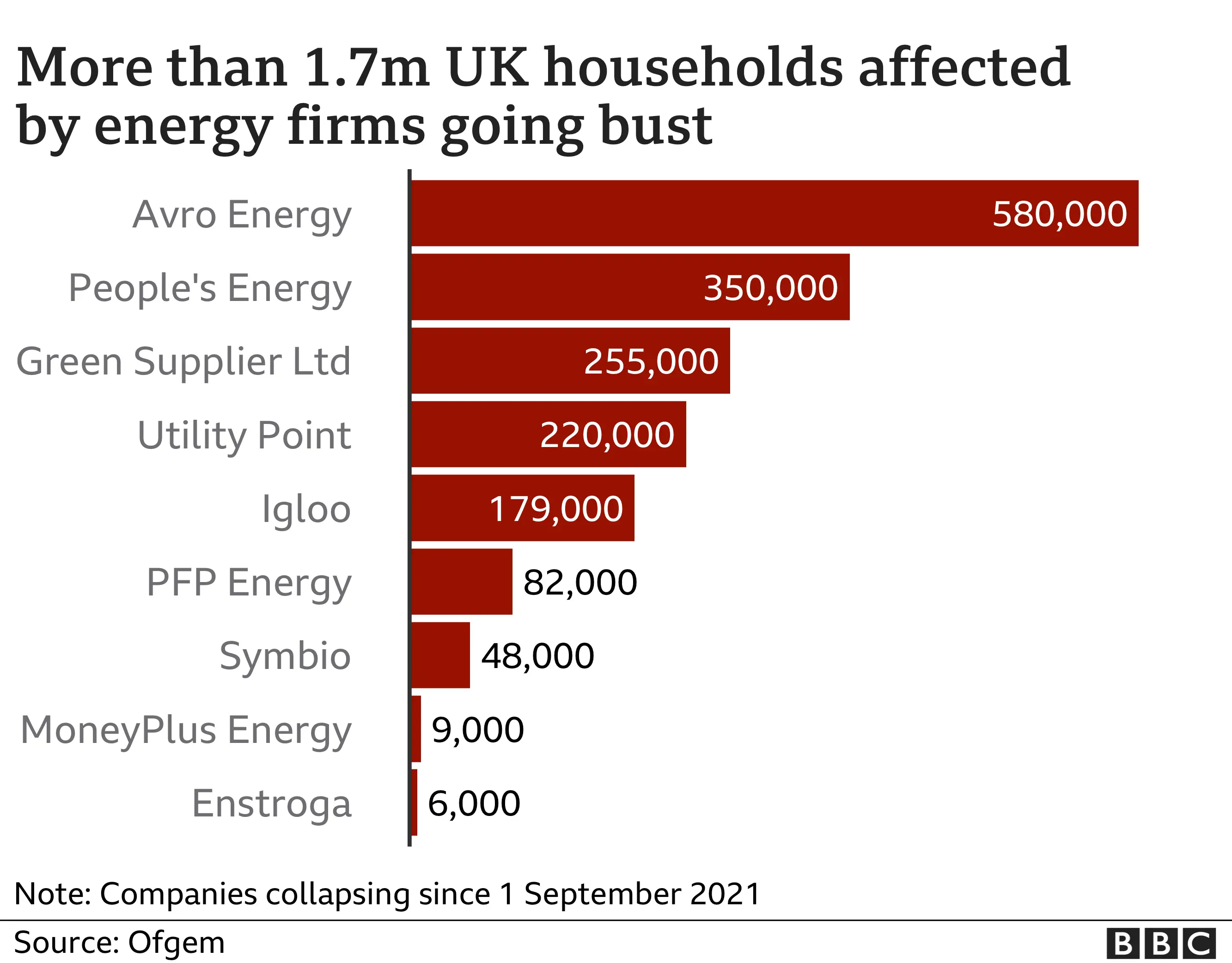
The tariffs that will be charged for the 1.7 million customers moving to new suppliers after their previous provider collapsed are being set at the same level as the new price cap.
Senior executives of bigger suppliers have argued that the price cap is making the situation worse. They say they are shouldering billions of pounds in additional costs by providing customers with energy that costs more to buy than they are allowed to sell it for under the retail price cap.
Emma Pinchbeck, chief executive of Energy UK, the trade association for the energy industry, told the BBC's Today programme: "It costs around £600 to take on a new customer at the moment because of the astonishing price of gas in the market and that's the main issue."
She added that more energy suppliers were expected to fail given the current "volatile" gas market.
Firms have criticised Ofgem, claiming that it should have known many smaller suppliers would not be resilient in the face of gas price rises.
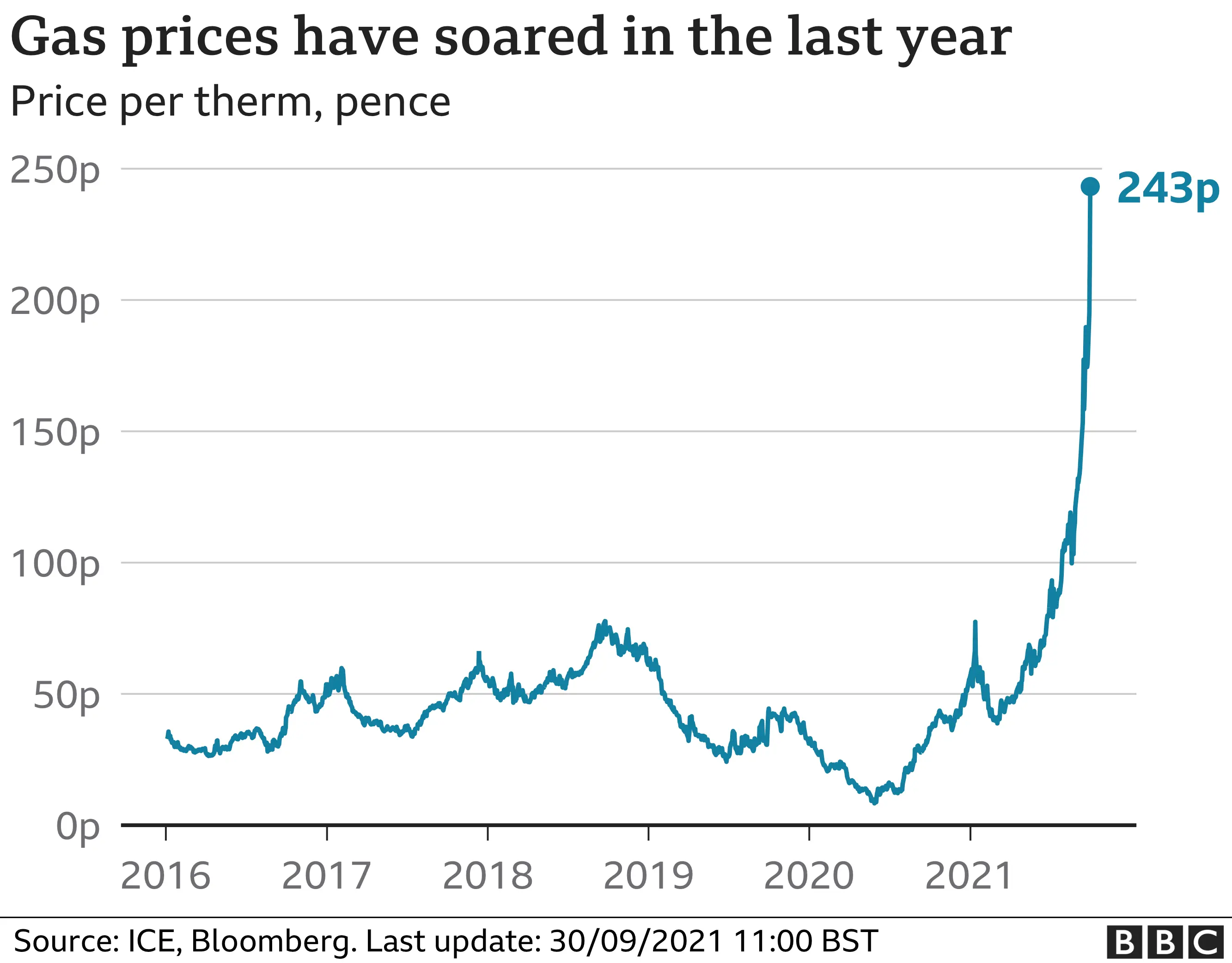
Jonathan Brearley, chief executive of Ofgem, rejected the criticism, saying that nobody could have predicted the huge rise in the cost of wholesale gas.
He accepted that the cost of protecting customers from failing energy providers could lead to higher bills in the future.
Ofgem will decide the level of the next price cap - which analysts predict to be considerably higher - in February, before it takes effect at the start of April.
A spokeswoman for the regulator said: "We are doing all we can to make sure consumers, especially people in vulnerable circumstances, do not pay more than is absolutely necessary this winter.
"Higher energy costs are never welcome news to anyone and the timing and size of this increase will be particularly difficult for many families still struggling with the impact of the pandemic. Anyone struggling to pay their energy bills should get in touch with their supplier to access the help that is available."


Have you been told that your energy bills will increase? How will this affect you? Send us your questions using the form below.
Please include a contact number if you are willing to speak to a BBC journalist. You can also get in touch in the following ways:
- WhatsApp: +44 7756 165803
- Tweet: @BBC_HaveYourSay
- Upload pictures or video
- Please read our terms & conditions and privacy policy
If you are reading this page and can't see the form you will need to visit the mobile version of the BBC website to submit your question or comment or you can email us at [email protected]. Please include your name, age and location with any submission.


- GOODBYE, MR BOND: Daniel Craig reflects on his time as the legendary 007
- WHAT'S THE DIFFERENCE BETWEEN FILM STARS AND INFLUENCERS?: Do influencers deserve more respect?

